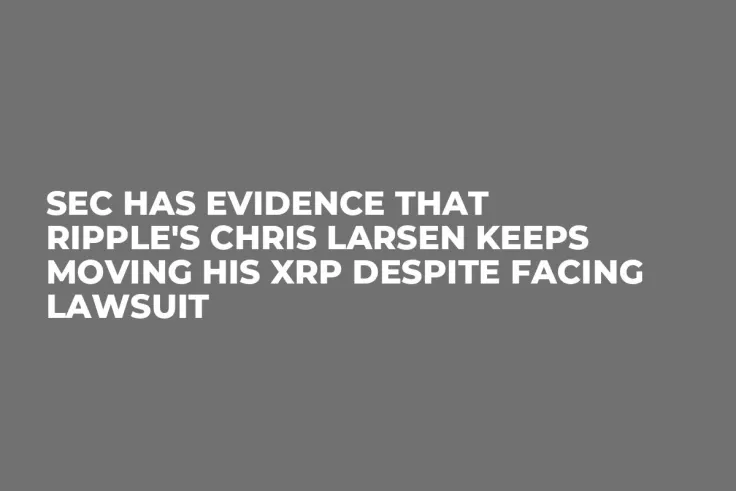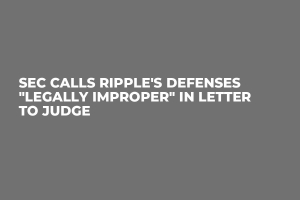The U.S. Securities and Exchange Commission wants to know whether the proceeds from XRP sales are a major source of income for Ripple Labs CEO Brad Garlinghouse and co-founder Chris Larsen.
In a letter to Judge Sarah Netburn, the SEC's senior trial attorney Jorge G. Tenreiro writes that the agency has obtained evidence that Larsen “appears to continue moving” his XRP in spite of legal scrutiny.
Tenreiro claims that the defendants’ financial condition is of critical importance to the case.
By obtaining the bank records of Larsen and Garlinghouse, it will be possible to de-anonymize their XRP transactions and determine “the whole universe” of their sales:
Without the bank records, the SEC would have to take Individual Defendants at their word, particularly as the SEC has already had to “manually” trace the Individual Defendants’ transactions since they last provided data, with no guarantee that the SEC has been able to identify the complete universe of their sales and blockchain movements of XRP.
In its landmark lawsuit against Ripple, the agency alleges that Garlinghouse and Larsen netted $159 million and $450 million, respectively, in proceeds from their XRP sales.
However, since XRP transactions are pseudonymous, the defendants’ could have pocketed much more.
The SEC is not interested in Ripple executives’ grocery purchases
Earlier this month, the SEC served subpoenas to some of the executives’ banks it has so far managed to identify.
As reported by U.Today, Larsen and Garlinghouse then asked the judge to quash these subpoenas, stating that the executives’ grocery purchases are not relevant to the case.
Yet, Tenreiro writes that the SEC takes no interest in the defendant’s financial affairs apart from determining how important XRP sales were to their income:
The SEC agreed to narrow the Requests to documents sufficient to show Individual Defendants’ financial condition at the time of their receipt and sales of XRP—which does not appear in Individual Defendants’ Letter.



 Dan Burgin
Dan Burgin Vladislav Sopov
Vladislav Sopov